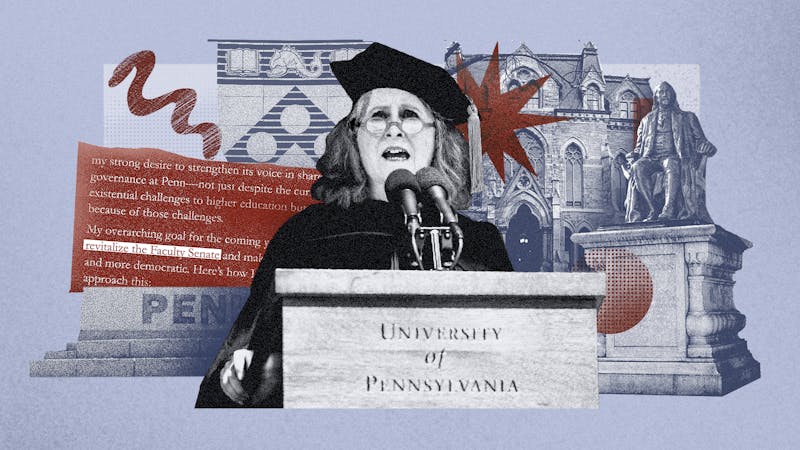Next semester, two Wharton School departments will become one.
The Business and Public Policy and Insurance and Risk Management departments will merge to become Business Economics and Public Policy starting on July 1. On March 1, both parties approved the merge and the Wharton faculty and the Board of Trustees ratified the merge.
The change was enacted for a variety of reasons, but primarily because of the departments’ intellectual compatibilities.
Wharton Deputy Dean Michael Gibbons explained some of the similarities between the two.
“The combined faculty share significant research complementarities, both with research interests and methodological approaches,” he wrote in an email. “Additionally, there are significant synergies in research interests across departments.”
Overall, Wharton decided on the merge to accommodate the needs of both departments, in and out of the classroom.
“For faculty and students, there are significant economies of scale and scope,” Gibbons wrote. “Because they were both small departments, the merger provides savings in departmental administration and research overhead, in particular with regard to faculty recruitment, doctoral students, space and research seminars.”
According to Wharton Professor and BPUB department Chair Robert Inman, the INSR department, which started in 1913, was founded at a time when Wharton was interested in training students for particular industries.
Specifically, the department initially featured training programs for people who wanted to work in the insurance industry.
“When I arrived in the early 1970s, there was a significant program training people to work in life and healthcare insurance,” he said. “Now, students no longer do that. The MBA and undergraduate students are not training for an industry, but rather training for a set of skills to take to any industry. Training for an industry no longer makes any sense.”
Similarly, the BPUB department, which was started in the 1980s, first focused on training students for government work. But over time, the department gradually shifted toward applied economics.
“The department moved away from training people for government work to people who would work in the private sector and think about their relationship to the government,” Inman said. “What happened naturally over the next 10 to 15 years was that the insurance department was doing the same thing the policy department was doing — business economics as it applies to the relationships to firms and government.”
Wharton students who have already declared concentrations in either BPUB or INSR will not be affected by the change.
College and Wharton senior Constance Du Cauze-De Nazelle, who is concentrating in BPUB and Finance, noted some positives of the merge.
“In BPUB we learn a lot about public policy and economics,” she said. “Merging it with INSR will probably increase people’s knowledge of microeconomics and the policies and risks associated with it.”
De Nazelle also described the correlation between the new department and a common interest in economics shared among many Wharton students.
“A lot of people in Wharton are interested in economics, so hopefully the merge will help them see how everything is related,” she said. “It might be a little slow to start off in the beginning, as students are unsure of what the new concentration will be like, but there are some really good faculty members in both departments, so it should be a good fit.”
For Wharton junior Brianna Mariolle, who is concentrating in INSR and Finance, the merge may seem more reasonable for faculty rather than for students.
“I’m sure that it makes sense for the faculty, but it doesn’t really make sense to me to put INSR under BPUB because the government and risk management are not necessarily related,” she said.
Wharton freshman Samaira Sirajee, who is undecided about her concentration, shared a similar view.
“I don’t associate the things I associate with BPUB with INSR,” she said, adding that more students who concentrate in the department may be interested in the policy aspect of it rather than the insurance and risk aspect.
Wharton junior Allison Lee, who is obtaining a triple concentration in BPUB, Management and Marketing, predicted that the merge will have little impact on the number of students who choose to concentrate in the new department.
“Personally, I don’t think it’s going to change anything because the majority of students concentrate in finance because that’s the most popular field,” she said. “I don’t think this will be a major player in terms of students picking concentrations.”
The Daily Pennsylvanian is an independent, student-run newspaper. Please consider making a donation to support the coverage that shapes the University. Your generosity ensures a future of strong journalism at Penn.
DonatePlease note All comments are eligible for publication in The Daily Pennsylvanian.







